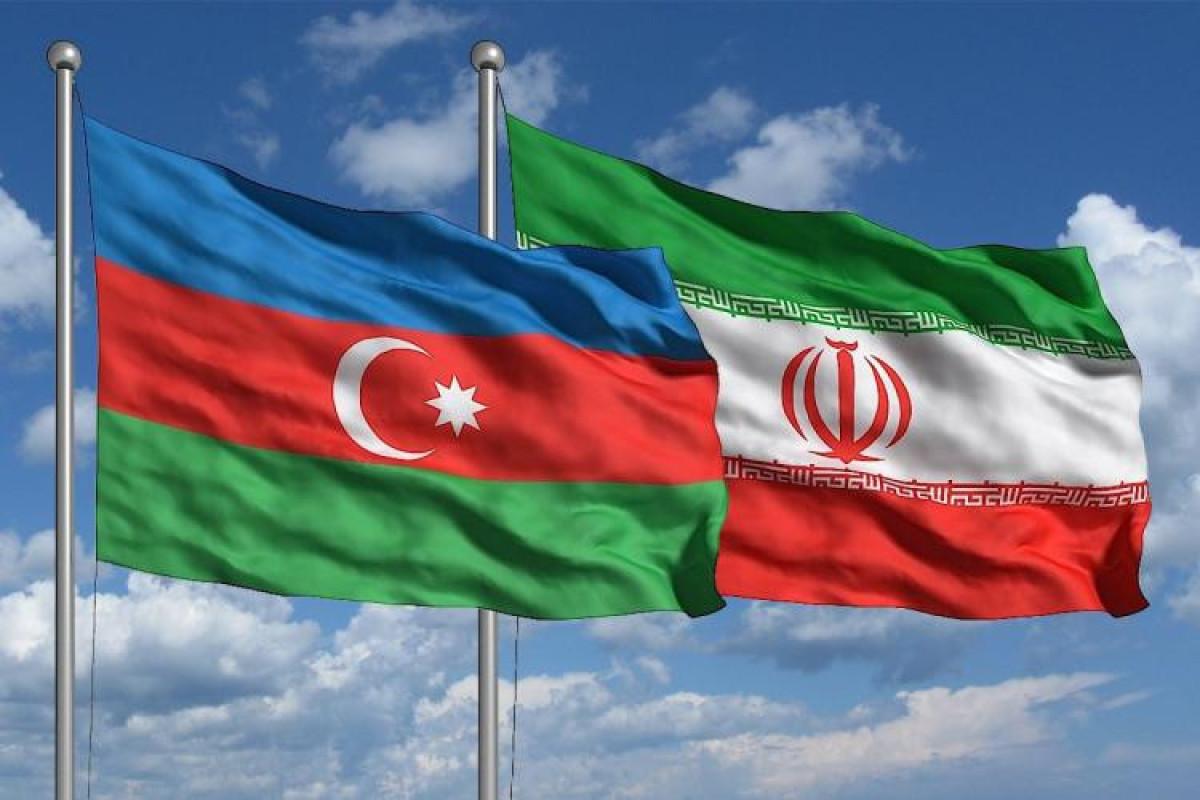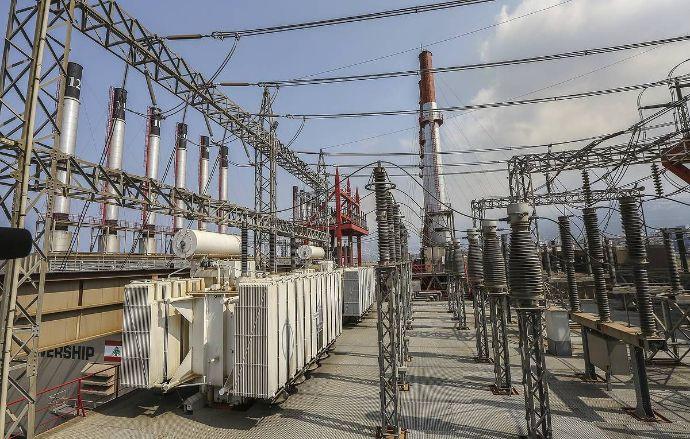Baku, Tehran enhance energy cooperation Review by Caliber.Az
Economic relations between Azerbaijan and Iran may reach a new level of development this year. Meetings of heads of state within regional summits, and visits of heads of relevant departments contributed to the promotion of capital-intensive transport, energy, and other joint projects. The visit of Iranian Minister of Energy Ali Akbar Mehrabian, which began on July 5, was another step that accelerated the implementation of these initiatives. The talks in Baku promise progress in energy exchange and connection of power grids of Iran, Azerbaijan, and Russia, a partnership in "green" energy, as well as the implementation of the final phase of work on Khudaferin and Qiz Qalasi hydropower plants.
Azerbaijani-Iranian business ties, in general, managed to maintain a steady growth trend in spite of international political obstacles, and sanctions. Moreover, joint initiatives in the automotive industry, agrarian sector, etc. were launched in the relatively prosperous 2018-2019. In the post-pandemic period, plans for the revival of the liberated Karabakh region were in the focus of Baku and Tehran's priorities. These include the joint construction of a transit automobile and railway corridor, the development of renewable energy sources (RES) and the hydro potential of the border Araz River, the implementation of swap supplies of gas, as well as the realization of large-scale intentions for energy exchange, the implementation of which was planned many years ago but has not been realized.
The prospects of further promotion of the above projects were discussed during yesterday's visit to Azerbaijan of the Iranian delegation consisting of ten energy specialists headed by Minister of Energy of the Islamic Republic of Iran Ali Akbar Mehrabian. As part of the visit, talks were held with Azerbaijani officials, including Energy Minister Parviz Shahbazov and Deputy Prime Minister Shahin Mustafayev.
"Iran and Azerbaijan are successfully implementing joint projects in the field of irrigation and electricity, and the most important priority of the Iranian government today is to expand economic relations with neighboring countries. During the current visit, there will be held discussions on the completion of projects of hydroelectric complexes and hydroelectric power plants Khudaferin and Qiz Qalasi, joint initiatives in the field of renewable energy, the connection of power grids of Iran, Azerbaijan, and Russia, and other areas of mutual interest," Iranian minister told media representatives at Heydar Aliyev International Airport on July 5.

A significant breakthrough in the energy cooperation between Baku and Tehran was achieved at the 15th summit of the ECO in Ashgabat on November 28, 2021, where Azerbaijan, Iran, and Turkmenistan signed an agreement on gas swap supplies. Since the beginning of January 2022, Turkmenistan has supplied 5-6 million cubic meters of gas per day to Iran, providing the northeastern part of the Islamic Republic, while Iran has exported the corresponding volume of gas to Azerbaijan. In the past six months, Baku received about 1.5 billion cubic meters of Turkmen gas, and due to the benefits of the swap scheme for all participants, the technical possibilities of doubling the supply are being agreed upon today.
Apparently, it is planned to expand this successful experience and transfer it to the joint production of hydrocarbon resources, including the development of oil and gas fields in the Caspian Sea. Moreover, Iran's interest in such cooperation with Azerbaijan is associated with the possibility of circumventing the sanctions, access to technologies, and new export schemes.
Energy cooperation with Iran is also seen as very promising in the framework of the memorandum of understanding signed on 11 March on the results of the 15th meeting of the Azerbaijan-Iran intergovernmental commission. The agreement envisages the creation of a transport corridor between the East Zangazur economic region of Azerbaijan and the Nakhchivan Autonomous Republic (NAR) through Iran, and besides the construction of highways and railway lines the project provides for laying high voltage power lines from our country to Iran and further to NAR. This transit power transmission line will be connected to Khudaferin and Qiz Qalasi hydroelectric power plants via Jabrayil 330/110-kilovolt substation, the largest in the region; Azerbaijani President Ilham Aliyev recently attended the foundation laying ceremony. The solar power plant "BP Jabrayil" will also be connected to the substation under construction and to the future joint power transmission line with Iran, and subsequently other nearby RES facilities, in the construction of which the Iranian companies are ready to participate.
As for the completion of projects of hydroelectric complexes and two HPPs with a total capacity of 280 MW on the Araz River, then by the results of the second meeting of the joint Azerbaijani-Iranian technical commission in April of this year, was announced the estimated cost of work - about $22 million on parity and it was decided to proceed to the construction and installation of equipment in the near future.
"During a broad-based meeting in Baku with Iran's Energy Minister Ali Akbar Mehrabian, we agreed to accelerate the construction of hydroelectric complexes Khudaferin and Qiz Qalasi and to complete construction work in the near future," Energy Minister Parviz Shahbazov wrote in his microblog on Twitter on Wednesday. According to the press service of the Ministry of Energy, during the meeting, the ministers discussed further steps to implement these projects and exchanged views on other issues on the bilateral energy cooperation agenda.
Among other things, the energy agenda covers the prospects of expansion of electricity exchange between Azerbaijan and Iran in periods of peak loads, followed by connecting the Iranian and Azerbaijani power systems and the connection of the energy system of Russia. It is expected that during the visit of Iran's energy minister there will be a final agreement on this direction.
It should be noted that Iran and Azerbaijan have a long history of cooperation in energy and water use. Back in 1971, a 22 MW hydroelectric complex was built together with Iran on the Araz River in the Nakhchivan Autonomous Republic.

As for energy exchange, since the 1990s, Iran has supplied the blockaded NAR with electricity in exchange for similar supplies from Azerbaijan to eliminate seasonal summer and winter power shortages in the northern regions of Iran. Since independence, the Azerbaijani-Iranian transmission potential has been expanded: substations and high-voltage power lines have been built in the border zone and today the energy exchange between the two countries is carried out by five high-voltage lines - Parsabad I, Parsabad II, Astara (132 Kv) as well as through 132 kV lines Julfa and Araz via the territory of NAR and the Julfa region neighboring Iran. In general, the work on a new 220-kilovolt transmission line "Masalli-Astara (Iran)" with a length of 68 kilometers was also completed.
These projects are extremely important: given that Iran's energy system is facing a serious shortage of hydropower resources in the summer for the second year in a row, Iran needs to increase supplies of electricity from outside to compensate for the seasonal deficit. Last summer Baku and Tehran agreed to increase the supply of Azerbaijani electricity by an additional 130 megawatts during the summer peak consumption. As a result, 257.5 kWh of Azerbaijani energy was supplied to Iran, which indicates a 26.2% growth.
On the whole, the capacity of the Azerbaijan-Iran transmission system has been brought up to about 800 MW and this potential can be used at full capacity after the full implementation of the energy bridge project between Russia, Azerbaijan, and Iran.
Thus, there is every reason to assert that in 2022 a new stage of Azerbaijani-Iranian energy cooperation can be laid, growing into the format of joint business undertakings and close cooperation in the power sector.








